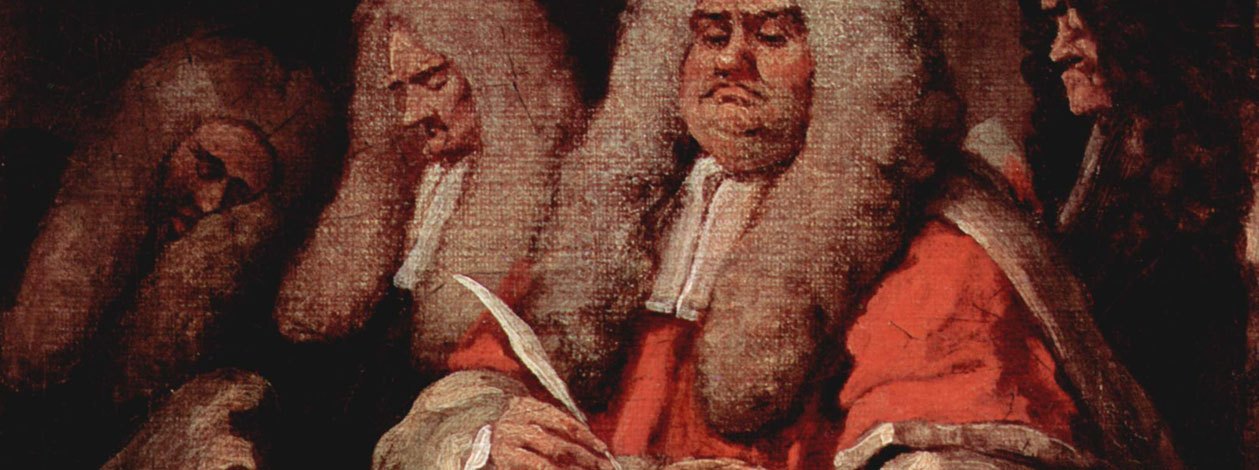Between 1674 and 1913 the Proceedings of the Central Criminal Court in London, the Old Bailey, were published eight times a year. These records detail some 197,000 individual trials and contain 127 million words recorded in 182,000 pages. They represent the largest single source of information about non-elite lives and behaviour ever published, and provide a wealth of detail about everyday life, as well as valuable systematic evidence of the circumstances surrounding the crimes and lives of victims and the accused, and their trial outcomes.
This project created a fully digitised and structured version of all surviving published trial accounts between 1674 and 1913, and made them available as a searchable online resource.
Users are able to search for entries in specific fields, such as type of crime, punishment sentence or defendant’s occupation, or search the whole text for any text string, and to combine both types of searches in a single query. It is also possible to tabulate specific fields, such as gender of defendant by verdict. Beyond this, for the period up to 1834 information on related documents and sources found in the libraries and archives of London is linked to each trial, creating a trail of information that leads users from the internet to the original manuscript sources for the history of crime. Also included are the Ordinary of Newgate’s Accounts of some 2,500 lives of the convicts executed between 1679 and 1772.
Trials up to 1834 have been linked to three digitised eighteenth and nineteenth-century maps, allowing users to examine the spatial distribution of criminal prosecutions. A series of historical background pages provide information on criminal justice, the history of London, and the Black, Chinese, Gay, Irish and Traveller communities (all of which are frequently referred to in the Proceedings).
The digitisation involved the scanning and double rekeying the text. This was performed via the Higher Education Digitisation Service at the University of Hertfordshire. The files thus created were then transferred to The Digital Humanities Institute in Sheffield, where they were marked-up, incorporating structured metadata detailing specific aspects of each trial. The website, hosted at the University of Sheffield, was launched in March 2003 and completed in July 2008. It has been regularly updated since then.
Version 9.0 – A Major Update
In Autumn 2023 version 9.0 was released. This major update, published on the occasion of the site’s 20th anniversary, includes a full rebuild of the technical infrastructure, revised and new background pages, a redesign of the site to facilitate use on mobile phones and tablets, new markup and categories for analysis, and corrections to errors in the markup, statistics, and links to the images of the original publication. For a full list of the changes, go to What’s New.
We would like to express our deep thanks to the University of Sheffield’s Alumni Fund and the alumni donors whose generous support have made this work possible.
Website
Related Projects
- London Lives 1690 to 1800: Crime, Poverty and Social Policy in the Metropolis
- Crime in the Community
- The Digital Panopticon: Tracing London Convicts in Britain & Australia, 1790-1925
- Locating London’s Past
Project Team – Version 1.0 to 8.0
- Prof. Robert Shoemaker (Department of History, University of Sheffield)
- Prof. Tim Hitchcock (Social Sciences, Arts and Humanities Research Institute, University of Hertfordshire)
- Prof. Clive Emsley (Department of History, Open University)
- Dr. Sharon Howard (Project Manager – The Digital Humanities Institute)
- Jamie McLaughlin (Developer – The Digital Humanities Institute)
- Ed MacKenzie (Developer – The Digital Humanities Institute)
- Katherine Rogers (Developer – The Digital Humanities Institute)
- Dr. Louise Henson (Project Manager, former)
Project Team – Version 9.0
- Prof. Robert Shoemaker (Project Director)
- Prof. Tim Hitchcock(Project Director)
- Jamie McLaughlin (Research Software Engineer – The Digital Humanities Institute)
- Nick Phipps (Web Designer)
- Dr. Sharon Howard (Data Manager)
- Dr. Mary Clayton (Proofreader)
- User testers
- Sheffield of Sheffield alumni donors
